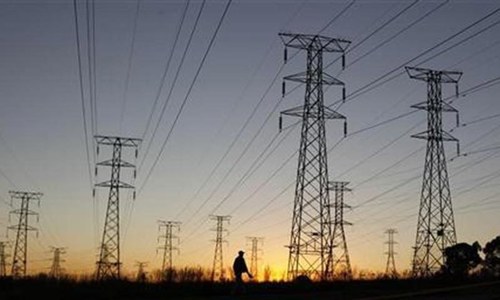ISLAMABAD: The government is claiming to have saved about Rs856 billion over a period of 10 years on account of renegotiation with independent power producers (IPPs) and change in terms of contracts and closure of public sector power projects.
This was the crux of a meeting of the Cabinet Committee on Energy (CCoE) presided over by Minister for Planning and Development Asad Umar. The CCOE constituted a committee led by Minister for Energy Omar Ayub Khan to effectuate revisions in various terms and conditions into formal agreements.
The CCoE “reviewed the report by the committee for negotiation with IPPs. CCoE Chairman Babar Yaqoob Fateh Muhammad presented its findings and highlights of the MoUs reached with the IPPs and its recommendations to the committee,” an announcement said.
The statement said the committee discussed various facets of the MoUs and their implementation. An initial estimate of potential savings was also presented to the CCoE. The implementation committee was formed to pursue the finalisation of agreements based on the MoUs and develop an implementation roadmap. The CCoE will regularly review the progress of the committee.
An official said the savings under the power policies of 1994, 2002 and 2006 renewable energy policy were initially estimated at about Rs225bn, Rs200bn and Rs250bn respectively over the remaining life of the projects. The committee was informed that to actualise these savings, the government will have to clear a backlog of about Rs355bn payable to IPPs.
The remaining Rs181bn were anticipated on account of closure of old power plants and revision in the terms of contracts of public sector plants including those in the hydropower and nuclear power plants.
This is being done through a reduction in rate of return on equity for all public sector plants including hydro, nuclear, old thermal and new Re-Gasified Liquefied Natural Gas (RLNG)-based plants. The combined impact of reduction in return on equity (ROE) for these projects has been estimated at about Rs28bn per annum based on current prices.
While this would reduce the overall electricity with a significant contribution to the economy and lower production costs, a major chunk of the financial burden would shift to the federal budget in the shape of reduction in dividends and return on equity. The reduction in ROE from 15-17pc at present for Wapda hydropower projects to 10pc in rupee (instead of dollar) would impact the authority’s revenue by Rs16bn per annum.
To compensate the government would have to make available about at least Rs160bn over the next 10 years out of the federal budget through the Public Sector Development Programme (PSDP) to finance ongoing strategic projects like Diamer-Basha dam, Dasu and Mohmand dam projects.
The reduction in ROE to 10pc for Gencos to provide a saving of about Rs3.5bn per annum. ROE for nuclear power plants would be reduced to 14pc at a fixed exchange rate of Rs148 per dollar as was done with IPPs.
Coupled with reduction in ROE, doing away with terms relating to guaranteed 66pc “Take or Pay” for gas supplies would of LNG based projects would also shift about Rs80bn burden off power sector to gas sector.
Published in Dawn, September 25th, 2020














































